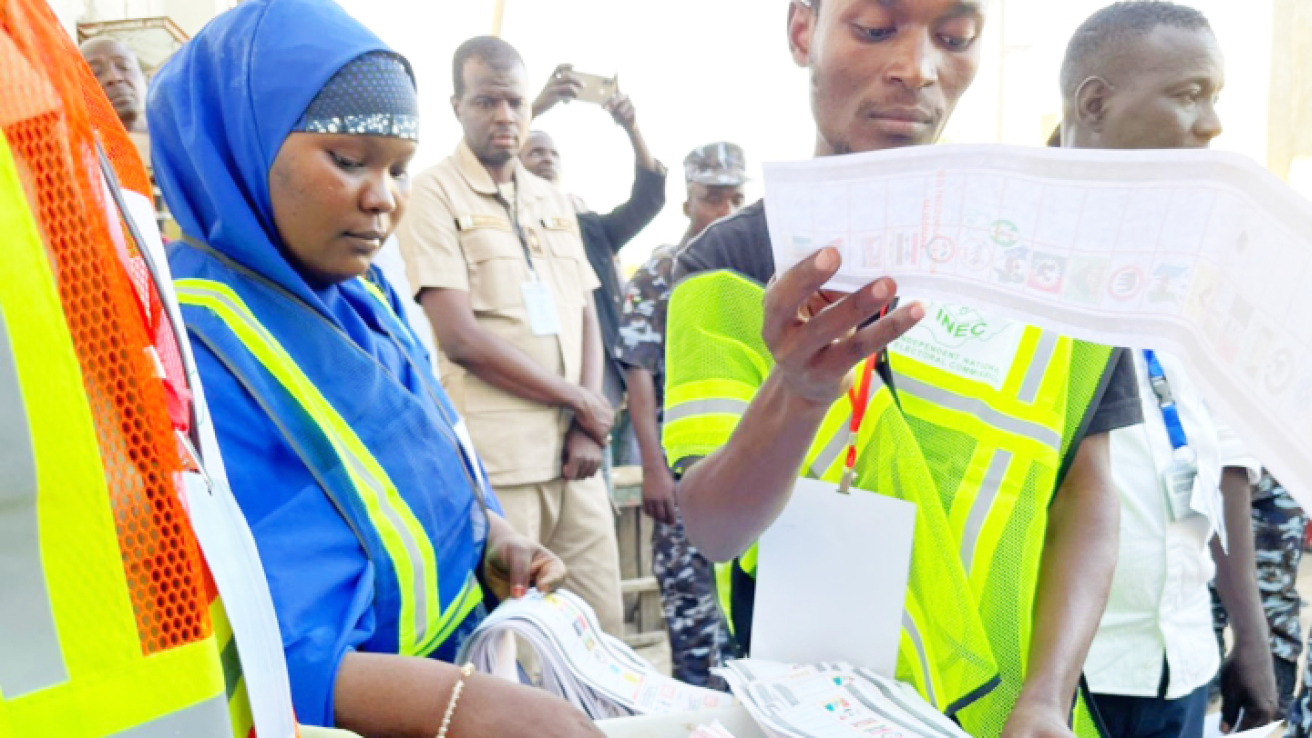I am fascinated by Kogi State, and for quite many reasons. Some are sentimental, like the fact that Lokoja is where one of my favourite uncles was based, and also the city where many of my relatives have made a home. The confluence of the Niger and Benue rivers, as well as the interesting topography it boasts of, make it one of the most stunning places to behold in Nigeria. Now, as the state goes through its gubernatorial election today, fostering a peaceful electoral process is paramount for stability and progress. It is a no-brainer to say elections are fundamental to democracy, providing citizens with the opportunity to choose their leaders. I stress this, because some major players in the background have been making divisive comments and even actions. But I am happy that Kogi citizens appear to have matured politically, which will hopefully negate any attempt to heat up the polity.
I feel it is necessary to point out, today of all days, that ensuring a peaceful atmosphere during elections requires a comprehensive approach that addresses various factors contributing to potential tensions, like security, for instance. Implementing robust security measures is crucial to preventing electoral violence, and collaborative efforts between the Nigerian Police Force, the Independent National Electoral Commission (INEC), and other security agencies should be intensified. Deploying an adequate number of security personnel to polling stations, collation centres, and strategic locations can deter potential troublemakers. However, I do not mean the usual grandstanding that is done, with the announcement of a ridiculously high number of personnel, a number which will end up not matching actual boots on the ground.
Kogi State is known for a fierce brand of politics, with all groups as passionate as the other. At this point, extensive voter education and sensitization programs should have been conducted, as it is essential to inform the electorate about the importance of peaceful participation in the electoral process. Civic education should emphasize the significance of expressing political preferences through non-violent means, encouraging citizens to exercise their democratic rights responsibly. Another important aspect is ensuring that materials and personnel are deployed to polling stations on time, which will surely minimize disruptions, and reduce the likelihood of tension. A comprehensive review of the logistics chain, including transportation, communication, and contingency plans, should be undertaken to identify and address potential bottlenecks.
Additionally, leveraging technology in the electoral process can enhance transparency and reduce opportunities for ‘magu-magu’. The use of electronic voting systems, biometric verification, and result collation platforms can streamline the process, reducing manual intervention and the potential for human error. Also, facilitating open and constructive dialogue between political parties, candidates, and their supporters is crucial in pre-emptively addressing grievances and resolving disputes. And we know Kogi State politicians can be intense. If you don’t believe me just Google ‘Kogi State gubernatorial elections 2023’. Therefore, establishing mechanisms for mediation and conflict resolution can provide aggrieved parties with channels to voice concerns and seek redress without resorting to violence.
NSF 2024: FG inaugurates MOC, charges members on sponsorship drive
Dollar crisis: 313 Bureau de Change asks FG to set up forex committee
A crucial player in all this, of course, is the media. It plays a most important role in shaping public perception, and even setting the tone of the atmosphere. Encouraging responsible journalism that focuses on factual reporting and avoids sensationalism can contribute to a calm electoral environment, so media outlets should resist the urge to break news in a way that breaks the peace. That means no dissemination of unverified information that may incite violence and vigilance for identification and correction of misinformation. The government could actually do their bit in this by engaging media outlets in public awareness campaigns can amplify messages of peace and civic responsibility. Regular broadcasts, interviews, and discussions on the importance of peaceful elections can contribute to a positive electoral atmosphere.
So, after a peaceful election, what’s next? It should be timely and transparent announcement of results, crucial in preventing post-polls tensions. Delays in the release of results can create uncertainty and suspicions of foul play, and INEC should ensure that result collation and announcement processes are efficient and transparent, with regular updates provided to the public. The successful conduct of a peaceful election requires a multi-faceted approach that addresses pre-election, election-day, and post-election challenges. Emphasis on implementation of solid security measures, improving electoral infrastructure, engaging political stakeholders, managing information responsibly, and ensuring transparent post-election processes, will go a long way in paving the way for a democratic exercise that reflects the will of the people without compromising peace, or stability. While the two famous rivers meet in the state, an additional confluence which Kogi State would benefit from today would be that of a peaceful and transparent election. Amen to that.

 Join Daily Trust WhatsApp Community For Quick Access To News and Happenings Around You.
Join Daily Trust WhatsApp Community For Quick Access To News and Happenings Around You.

